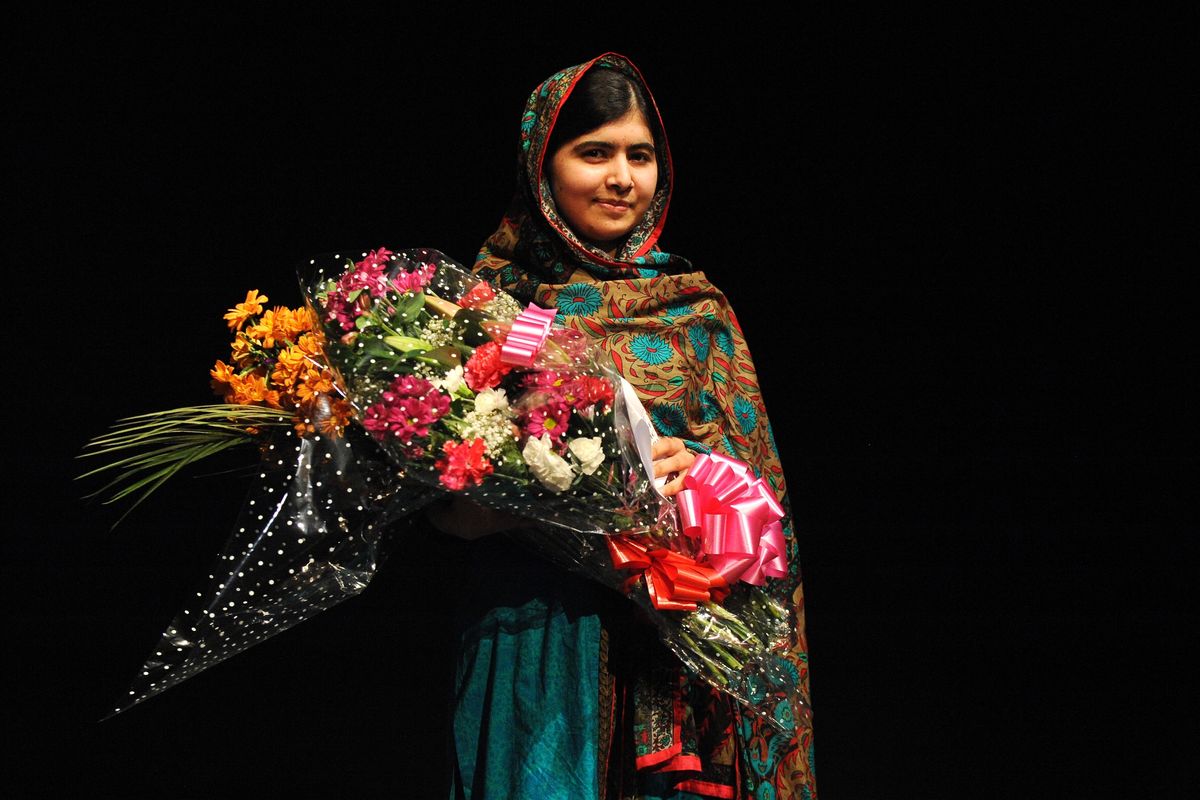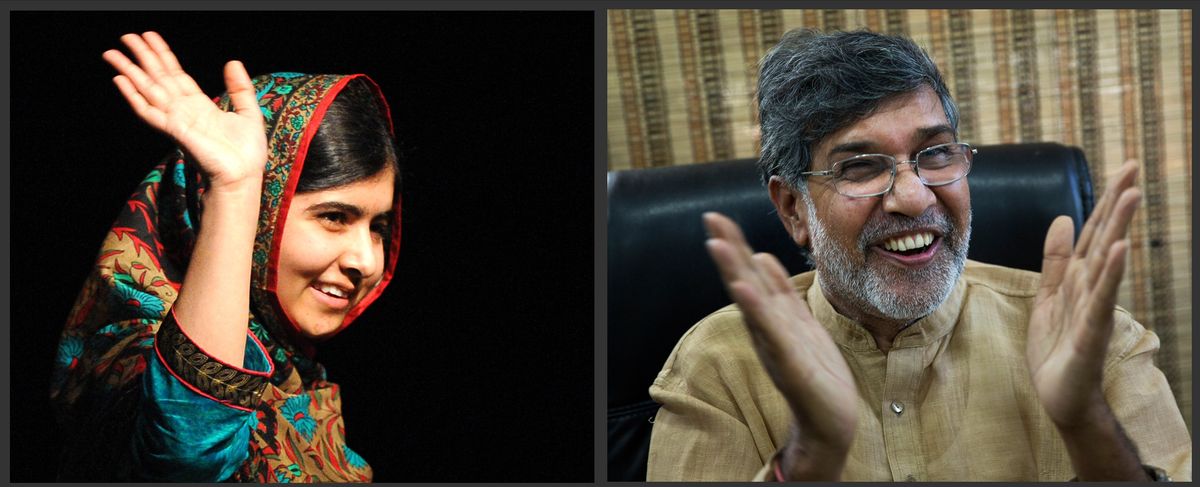Malala, Satyarthi linked by Nobel Peace Prize win
Malala Yousafzai, of Pakistan, poses with a bouquet after speaking during a media conference Friday at the Library of Birmingham, in Birmingham, England, , after she was named co-winner of the Nobel Peace Prize. (Associated Press)
NEW DELHI – One is Muslim, the other Hindu. One a Pakistani, the other Indian. One a school girl just starting out in life, the other a man with decades of experience.
Despite their many differences, 17-year-old Malala Yousafzai and 60-year-old Kailash Satyarthi will be forever linked – co-winners of the 2014 Nobel Peace Prize, honored for risking their lives for the rights of children to education and to lives free of abuse. Their selection was widely acclaimed; their heroism undeniable.
But something more was at work here: In awarding the prize Friday, the Nobel Committee also sent a blunt message to the rival nations of India and Pakistan that if two of their citizens can work for a common goal, their governments too could do better in finding common ground.
The two nations almost have defined themselves by their staunch opposition to one another. They became enemies almost instantly upon gaining independence in 1947 from imperial Britain, and have since fought three full-scale wars over various issues, including competing claims to the Himalayan region of Kashmir that sits between them. Just this week, their troops have hurled mortar shells and fired guns at one another across the Kashmir border, with civilian casualties in double digits.
The Nobel Committee’s chairman, Thorbjoern Jagland, acknowledged his panel gave the prize to Yousafzai and Satyarthi partly to nudge the two countries together, though he cautioned that the impact of the award should not be overestimated.
“You can see that there is a lot of extremism coming from this part of the world. It is partly coming from the fact that young people don’t have a future. They don’t have education. They don’t have a job,” Jagland told the Associated Press. “We want to show that people in all religions can come together in a common cause.”
The Indian winner immediately spoke about the potential to bridge old divides.
About Malala, Satyarthi said: “I will invite her in a new fight for peace in our region.” He also said this year’s choice to award one person from each of the nuclear-armed neighbors in South Asia made “a great statement from the Nobel Committee looking at the present scenarios between India and Pakistan.”
This would not be the first time the Peace Prize apparently has engaged in this kind of political engineering.
In 2009, the committee awarded Barack Obama after the U.S. president visited Middle Eastern nations estranged during the previous Bush administration. Fifteen years earlier, the award went to the trio of Yitzhak Rabin, Yasser Arafat and Shimon Peres after an apparent breakthrough in Israeli-Palestinian peace talks, though it never led to a deal.
And in 1996, the committee awarded Timorese Carlos Filipe Ximenes Belo and Josi Ramos-Horta, which many believe was critical in the peaceful cessation of East Timor from Indonesia in 2001.
But some said this year’s choice wasn’t likely to work.
“It is tempting to see the Nobel Peace Prize announcement as a nuanced message to Pakistan and India to stop shelling each other across the border and start protecting children,” said London-based writer and human rights activist Salil Tripathi. “Whether that will sway the hardliners on both sides is, of course, a different question.”
Independent Pakistani political analyst Hasan Askari Rizvi in Lahore said the nations’ animosity was so deeply rooted that “I don’t see any positive impact of the award on two societies,” especially while battles continued along the Kashmiri border.
Both India and Pakistan today face serious challenges in lifting their people out of poverty, though each is beset by its own challenges in doing so. India, a bubbling democracy with a fast-growing economy, has been overwhelmed by the scale by which it needs to improve people’s lives, with a 1.2 billion population that still is growing. Pakistan, with a gross domestic product equal to just a quarter of India’s stock exchange daily trade, is much further behind in generating power, building infrastructure and establishing security. It also is seen widely as being controlled by an entrenched and opaque military establishment often accused of cozying up to militant jihadists.
As was underscored by Friday’s award, child labor and abuse are widespread, and largely ignored, in both countries.
Satyarthi has been at the forefront of a global movement to end child slavery and exploitative child labor since 1980, and has led the rescue of tens of thousands of child slaves and developed a successful model for their education and rehabilitation. He has also survived several attempts on his life.
Malala, who now lives with her family in the British city of Birmingham, was shot in the head by a Taliban gunman in Pakistan for insisting that girls as well as boys have the right to an education. Surviving several operations with the help of British medical care, she continued both her activism and her studies.

